Private issues
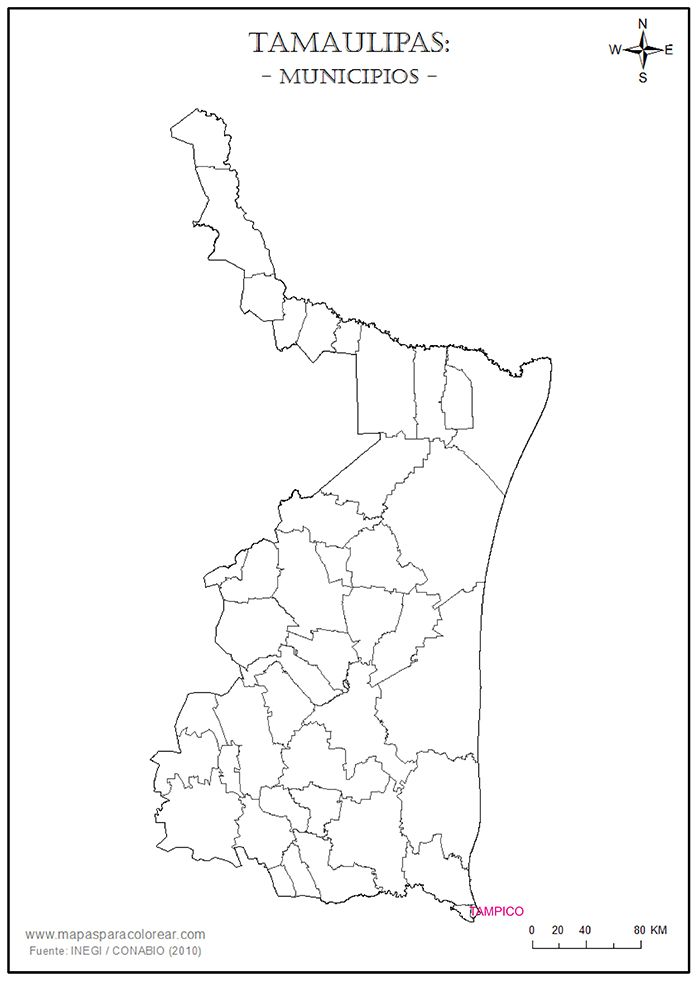 Tampico
Tampico
Compañía Eléctrica de Luz, Fuerza y Tracción de Tampico, S. A.
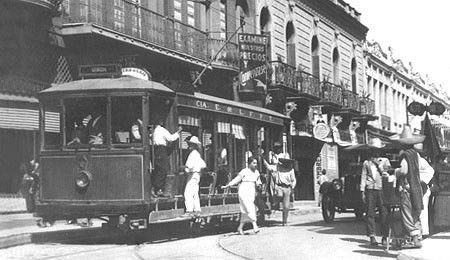
The Compañía Eléctrica de Luz, Fuerza y Tracción de Tampico was registered in London on 24 May 1912, as part of Weetman Pearson's empire. It purchased Tampico's animal tramway and electricity company and ordered new trams from Wason in Massachusetts on 16 August 1913. The new vehicles arrived in Tampico in 1914 in the heat of the Mexican Revolution and the date when they started running is unknown.
The catalogues list various tickets from this tram company but we need further documentary evidence before we can agree that these were used as paper currency.
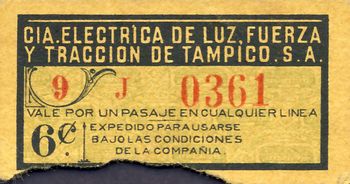 M3916 6c Cía. Eléctrica de Luz, Fuerza y Tracción
M3916 6c Cía. Eléctrica de Luz, Fuerza y Tracción
| series | from | to | total number |
total value |
||
| 6c | J | includes number 0361 |
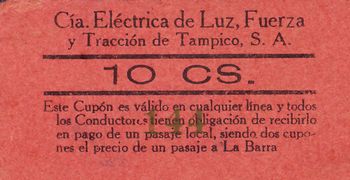 M3917a 10c Cía. Eléctrica de Luz, Fuerza y Tracción
M3917a 10c Cía. Eléctrica de Luz, Fuerza y Tracción
| date on note | from | to | total number |
total value |
||
| 10c | 1 February 1916 | includes number 906 | ||||
| 21 March 1916 | includes number 2691 |
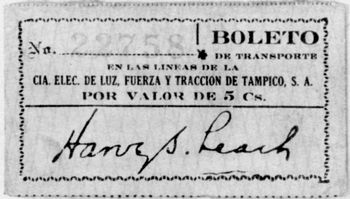 M3915 5c Cía. Eléctrica de Luz, Fuerza y Tracción
M3915 5c Cía. Eléctrica de Luz, Fuerza y Tracción
| date on note | from | to | total number |
total value |
||
| 5c | 21 June 1920 | includes number 22758 |
The last boleto has the signature of the general manager, Harvey S. Leach.
|
Harvey S. Leach first came to Mexico in 1891 as an employee of Weetman Dickson Pearson (later Lord Cowdray), the British construction contractor, railroad builder, and later oil magnate. Leach worked for Pearson from 1891 to 1899, a period in which the Pearson company built the canals that drained Mexico City, constructed the harbour and docks of Veracruz, and finally laid the tracks of the Inter-Ocean Railroad across the Isthmus of Tehuantepec. In 1900 Leach left the Pearson company and went to work as a consulting engineer for the Guanajuato Power Company. Leach took another job in 1904, this time as consulting engineer for the Guanajuato Development Company, and then from 1906 to 1912 he worked as a general construction contractor in Mexico City. Finally in 1912 Leach went to work for the Compañía Eléctrica de Luz, Fuerza y Tracción de Tampico as a civil engineer, rising to become general manager of the company by 1914. On 2 September 1923 after provocation fron Leach, who reduced wages and fired unionised workers, the workers at his company went on strike. The strike was not resolved until 16 February 1924 after the government of President Obregón seized the company’s properties. Because of Leach’s hostile attitude, the Mexican Union of Electrical Workers demanded his expulsion from Mexico under Article 33 of the Constitution "for his attitude of open hostility towards the Institutions of the Republic and the complete lack of respect for the authorities of the Nation". Leach and some of his supporters asked the U.S. government to launch an international appeal (among Leach’s supporters was W. F. Buckley, father to conservative author and commentator William F. Buckley, Jr., who had himself been deported on similar grounds). At the request of Leach and people like Buckley, U.S. State Department officials appealed his deportation several times but in response to the last appeal, General Sáenz informed them “that in view of the strike situation at Tampico President Obregón could not at that time revoke his order of expulsion.” The situation was delicate because of de la Huerta's rebellion and Obregon's desire not to upset the United States but, frankly, although he had been in Mexico for over 30 years Leach deserved to be expelled. |
 |
Maury & Ramón
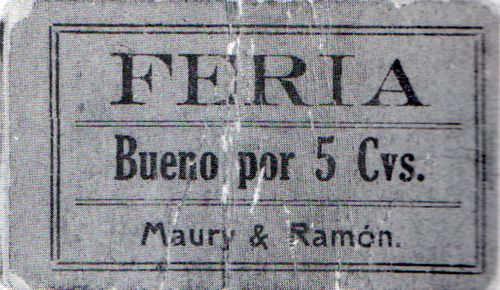 M3919 5c Maury & Ramón
M3919 5c Maury & Ramón
A cartón for 5c in change (feria).
Tampico Banking Corporation
Among the archives that were thrown into landfill by the new owners of the American Bank Note Company was correspondence from 1921-1926 on notes for the Tampico Banking CorporationABNC, 40422.00. This might have been for a proposed (and possibly effected) issue of low value notes, to address the same shortage as the Comisión Monetaria notes in Mexico City.
We know of four notes issued by cantinas in Tampico.
Cantina "El Sol"
The cantina "El Sol" issued a 10c note.
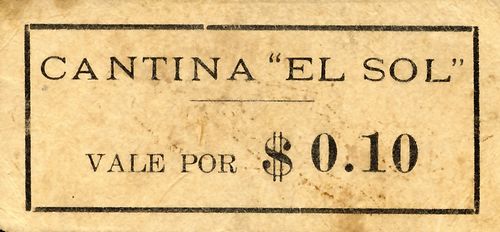
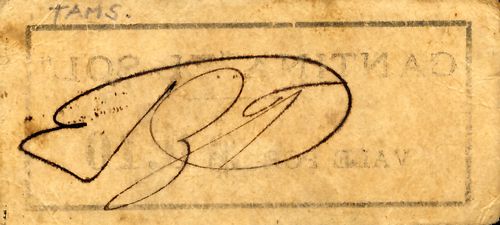 M3930 10c Cantina "El Sol"
M3930 10c Cantina "El Sol"
The initials on the reverse are of [ ][identification needed].
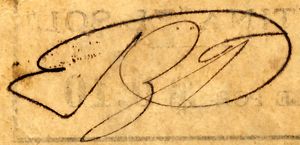 |
Cantina del Comercio
The Cantina del Comercio, of Manuel Blanco Sierra y Cía, at calle del Mercado 1031, issued a similar 10c note.
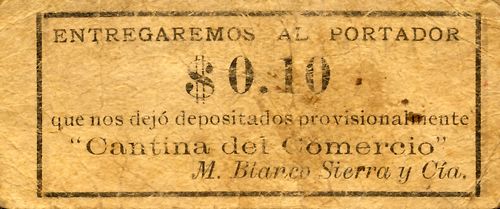
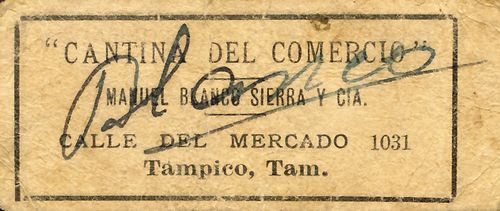 M3926 10c Cantina del Comercio
M3926 10c Cantina del Comercio
| Manuel Blanco Sierra |  |
Cantina La Covacha
The nearby Cantina La Covacha, of V. Setien, at calle Bajo Mercado 1030, issued a 20c note.
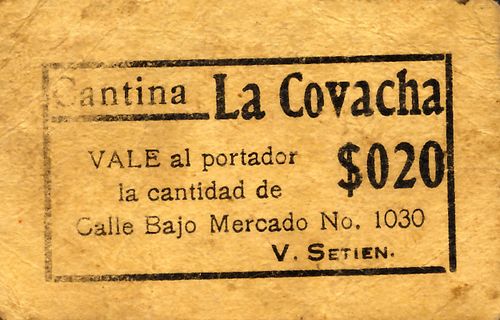
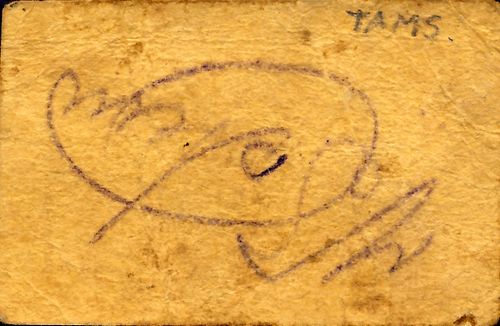 M3921 20c Cantina La Covacha
M3921 20c Cantina La Covacha
| V. Setien | 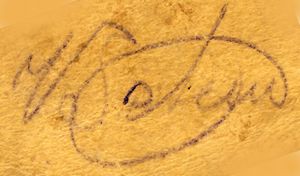 |
"El Louvre"
The cantina and restaurant "El Louvre" on the corner of calles Estado and Aurora (today General López de Lara), and operated by Antonio Carreras, issued a note for 50 centavos.
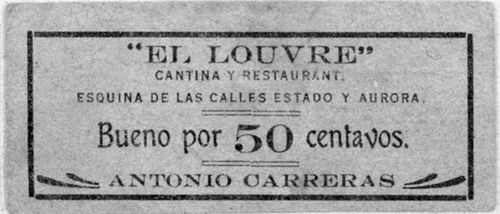 M3928 50c "El Louvre"
M3928 50c "El Louvre"
